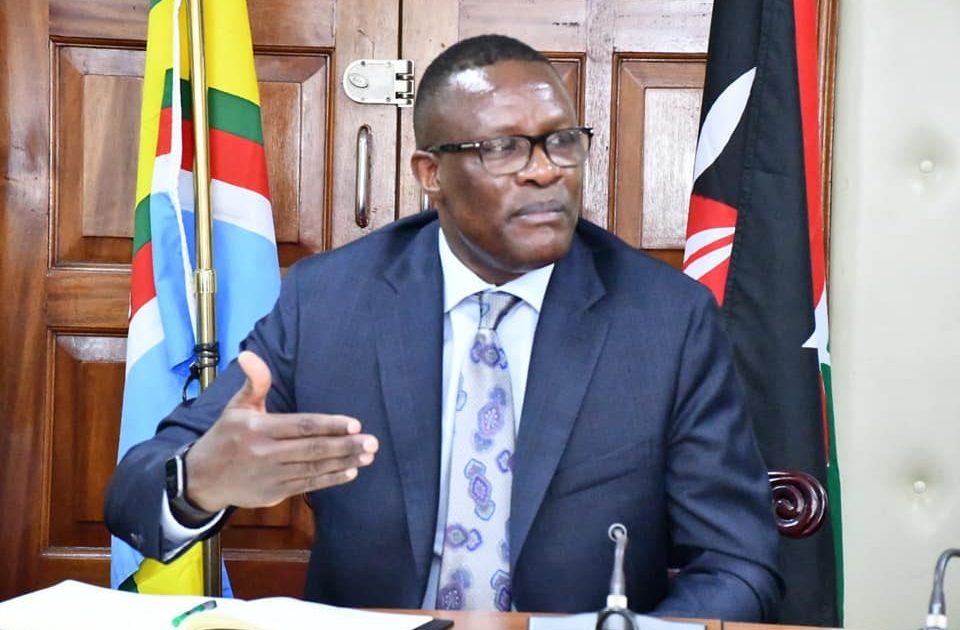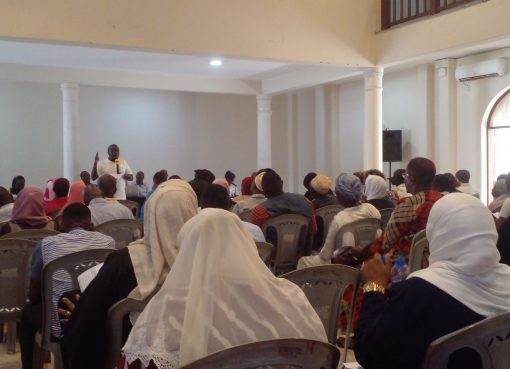The government is committed to digitize all government services with a will to enhancing service delivery to the people as well as eliminate the traditional red-tape of government bureaucracy, Information Communication and The Digital Economy Cabinet Secretary Eliud Owalo has said.
Owalo said that the same effort and process will be made to protect the people’s right to privacy as a fundamental human right.
The CS made the remarks during the Office of Data Protection Commission (ODPC) 42nd annual Data Privacy Day that aims to raise awareness and promote the right to personal data privacy and provide an opportunity to reflect and share best data protection practices and emerging issues.
In the two-day conference themed ‘Promoting Data Protection in a Digitally Transformed Economy’, ODPC’s aim is to raise awareness among businesses and individuals and promote conversations about the importance of protecting the privacy of their personal information during this era of the digital economy.
The CS said that the conference gives the government the opportunity to take stock of the gaps and gains in safeguarding the people’s right to privacy and data protection in particular.
Owalo added that the day also provides a reflection on how better the government could continue providing seamless E-government services while also complying with both the statutory requirements and principles of personal data protection.
The CS lauded the efforts and initiatives put in place by the Commissioner Immaculate Kassait’s led Data Protection Commission in executing the mandate as articulated in the Data Protection Act 2019.
Owalo emphasized that stakeholders need to have a delicate balancing act on how to reconcile or align the two perspectives of the Data Protection Act 2019 and the Access to Information Act of 2016 which stipulates that every citizen has the right to access any information as opposed to the former which stipulates that integral components of data must remain private and confidential.
“The aim of this day is to raise awareness in government and the business community as well as development partners, academia and general public about the importance of protecting the privacy of their personal information especially so during this age when digital technology has spread to all corners of the globe and all spheres of the economy,” he maintained.
The CS noted that the day’s event reminds every one of the possible opportunities for collaboration among government agencies, financial institutions, telecommunications companies, academia, non-profit entities, privacy professionals and educators on matters of enhancing personal data protection.
He disclosed that the government is embarking on a very ambitious program of digitizing all government records on one hand while correspondingly digitizing government services on the other.
Owalo revealed that in six months, with the necessary prerequisite ICT infrastructure in place, the government shall have on-boarded on to its E-Citizen platform a total of 5000 services to a future paperless government while simultaneously thinking of data protection, data privacy and by extension cyber security.
The CS said that the country’s economic blueprint, the Kenyan Vision 2030, has been accelerated through six core pillars of the Kenya Kwanza plan namely Agriculture, Micro Small and Medium Enterprises (MSMEs), Housing and Settlement, Healthcare, the Digital Super Highway and Creative Economy and the Environment and Climate Change.
“We must seize the significant socio-economic opportunities that digital technologies bring us. Today, we are witnessing a digital revolution where robotics, Artificial Intelligence (AI), Internet of Things (IoT), Big Data, autonomous vehicles, 3-D printing, nanotechnology, biotechnology and quantum computing, all converge to enable us participate in the Fourth Industrial Revolution,” urged Owalo.
According to the CS, emerging technologies go hand-in-hand with the need for capacity building and upscaling of the skills’ set for Kenya’s vibrant youth, so that they too can actively contribute towards the growth of the economy.
He added that the youth, who are our future, can leverage technology to realize the country’s goal to be a middle income economy and the digital hub of Africa thereby positioning Kenya effectively in the global market place by way of comparative advantage.
Owalo reiterated that his Ministry is committed to building the infrastructure for technology and putting in place vibrant legislative and policy frameworks that will encourage investments in the ICT sector.
“Similarly, we have initiatives in place to strengthen the digital economy through education, skills and training, establishment of innovation hubs for the development of skills, talents, and incubation of start-ups,” he added.
Further, Owalo disclosed that his Ministry is committed to rolling out an extra 100,000 KM of Fibre Optic Cable, so as to bring on the digital platform all parts of the Country, establish 25,000 GoK funded digital hotspots, set up 1450 village digital hubs and restructure the Postal Corporation of Kenya, the Kenya News Agency and the Kenya Broadcasting Corporation.
He directed the OCPC to issue advisories on the fundamental questions of the value of data protection in Agriculture to safeguard personal data during the registration of farmers and ensure government distributes subsidized fertilizers and other agricultural inputs to the target farmers across the country.
Through MSMEs to financial and telecommunication institutions involved in the rollout of the Hustler Fund, and ensure that the processing of loans is in accordance with the Data Protection Act, 2019 and Regulations and Health Care to NHIF, health facilities and medical insurance companies to ensure that the privacy of Kenyans is safeguarded during the processing of their sensitive information and the Digital SuperHighway and the Creative Economy to all government agencies undertaking digitization of government records, to ensure that automation of government services is within the provisions of the Data Protection Act, 2019.
“In addition, the office will play a critical role in enhancing national security and, especially on data localization. The ODPC will issue guidelines on data localization, especially data on Kenyan citizens,” said Owalo.
At the same time, Principal Secretary (PS) State Department for ICT and the Digital Economy Eng. John Tanui lauded the ODPC for organizing a panel discussion on how to safeguard personal data as envisaged in the constitution and actualized in the data protection act of 2019 and data protection regulations of 2021
He assured that the State department will continue to support the ODPC through Budget Outsourcing through the National Treasury and facilitating necessary approvals to enable the Office to effectively execute its Mandate.
“The digital economy blueprint 2019 which is aligned to the Vision 2030 envisions a digitally empowered citizenry, living in a digitally enabled society. It also highlights the significant work already happening across Government, private sector, civil society, businesses, and academia,” said Tanui.
He added that it further identifies further action required to ensure all Kenyan citizens and residents thrive in a global digital economy through its five key pillars: digital government, digital business, infrastructure, innovation-driven entrepreneurship and digital skills and values.
The PS stated that the panel discussions in the provision of government services will provide a platform for key sector players to commit to ensuring data protection principles are adhered to as set out in the data protection laws and how private sector players can leverage on personal data to grow the economy while being compliant to the data protection legal frameworks.
By Michael Omondi




